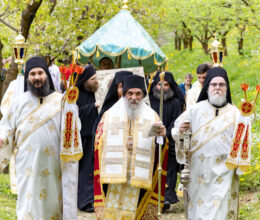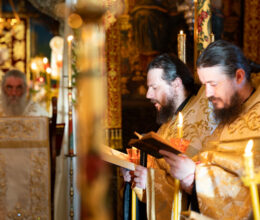Homily of His Grace, Bishop Partenij of Antania, Abbot of the Holy Bigorski Monastery, Delivered at the Divine Liturgy on the Sunday of the Veneration of the Cross, Following the Reading of the Holy Gospel, March 19, 2023, in the Year of the Lord
In the name of the Father, and of the Son, and of the Holy Spirit!
Beloved brothers and sisters, today, precisely at the midpoint of this salvific Forty-Day Fast, our Holy Church presents us with the opportunity to venerate the honorable and life-giving Cross. The Holy and Great Fast is the greatest and most important of all fasts. The holy fathers teach us that if we observe it as the Church recommends—with bodily and spiritual restraint, good works, blessed struggles, and prayer—then through it, all the sins we have committed throughout the year will be forgiven.
It often happens that when we undertake a great and important task, we grow weary and disheartened midway through, as our enthusiasm wanes and our strength diminishes. At such times, we need additional motivation and strength to bring our efforts to completion with success. That is precisely why the wise fathers of the Church—well acquainted with human psychology and weakness—place the life-giving Cross before us in the middle of the Fast as a “support for the faithful” and a “fortification of the Church.” Gazing upon the Cross, our thoughts turn to the Savior who was crucified upon it, enduring the greatest suffering for our salvation. In this way, we receive renewed strength and zeal to persevere in the struggle of self-restraint and charity.
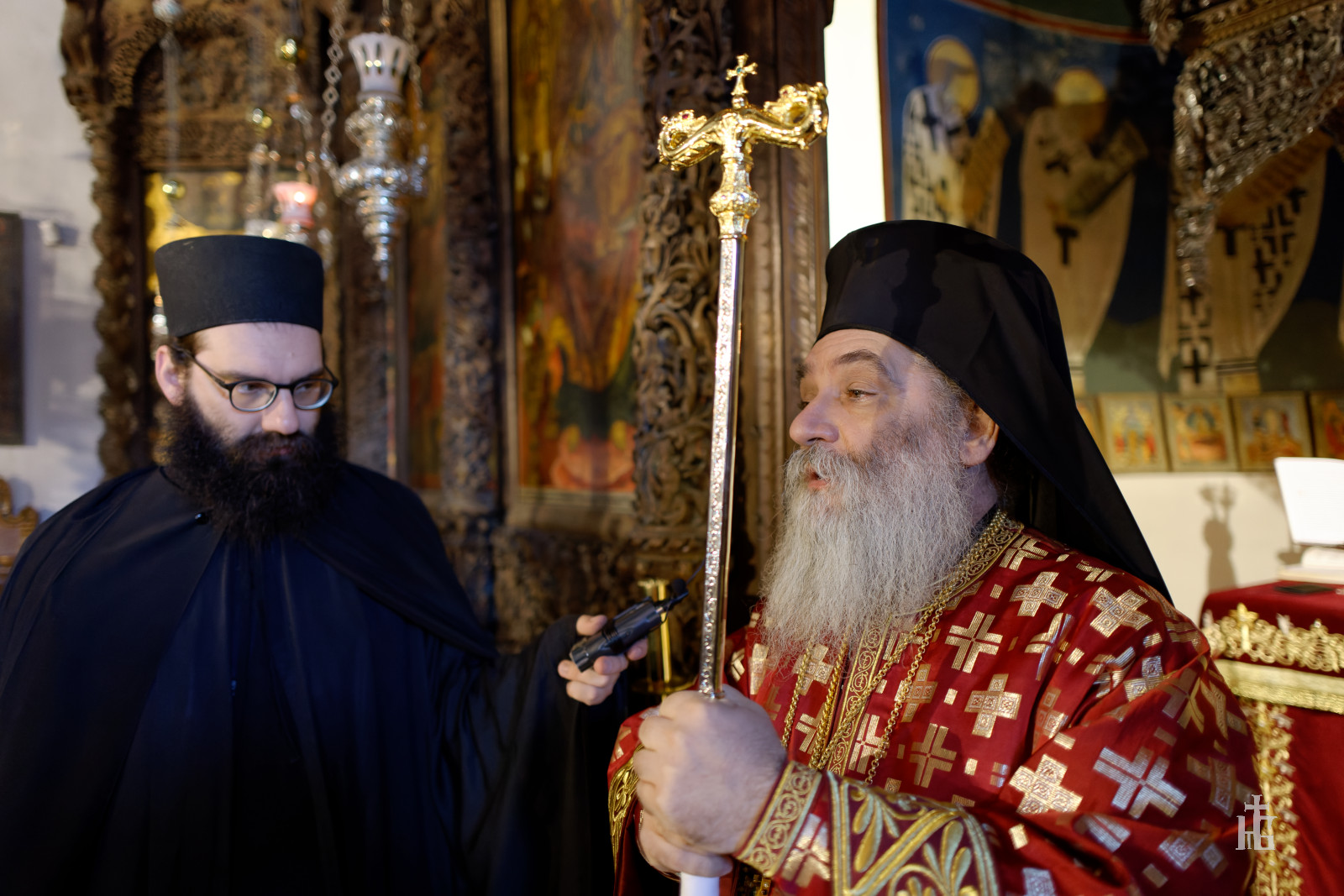
In harmony with the veneration of the Cross placed at the center of the church today, we heard at the Divine Liturgy the corresponding Gospel passage in which the Lord Jesus calls us, saying: “If anyone would come after Me, let him deny himself, take up his cross, and follow Me. For whoever would save his life will lose it, but whoever loses his life for My sake and the Gospel’s will save it” (Mark 8:34-35). With these words, Christ invites us to deny ourselves. But what exactly does it mean to deny oneself? Does it mean rejecting our personality or developing a psychological complex of inferiority or worthlessness? Certainly not. The Lord does not want us to hate or diminish ourselves. Recall that one of the two greatest commandments is: “You shall love your neighbor as yourself” (Mark 12:31). So, how can we love our neighbor if we do not love ourselves?
Therefore, when the Lord speaks of self-denial, He is calling us to abandon the false, egotistical image of ourselves. It does not mean rejecting our authentic, God-created self but renouncing the distorted and fallen ego that corrupts and oppresses our true being. We must let go of the “old man” within us, as the Apostle Paul paraphrases the Lord’s words, saying: “Put off your old self, which belongs to your former way of life and is corrupted by deceitful desires; be renewed in the spirit of your minds, and put on the new self, created after the likeness of God in true righteousness and holiness” (Eph. 4:22-24). This means we must cast off all sinful habits and attachments accumulated throughout our previous life—those that alienate us from God.
This season of “spiritual spring,” as the Great Lenten Fast is called in the Church’s poetry, is particularly conducive to renouncing the sinful self and cultivating our inner, spiritual person in Christ. Only then can the soul blossom with the sweet fragrance of the fruits of the Holy Spirit: “love, joy, peace, patience, kindness, goodness, faithfulness, gentleness, and self-control” (Gal. 5:22).
To achieve this, we must first abandon judgment, slander, gossip, gluttony, drunkenness, and all other vices and passions. We must instead embrace forgiveness and understanding toward others. Indeed, we began this fast with mutual forgiveness, recognizing it as the essential precondition for our fasting to be acceptable to God. For even patience, when accompanied by love and hope, is a cross.
And truly, is it not a cross and a struggle to bear with the weaknesses of our neighbor? Is it not a cross to endure the faults of one’s spouse, not to condemn them when they stumble, but rather to crucify oneself in love for their sake? Only in this way can we grow in love and draw the other toward repentance and love as well.
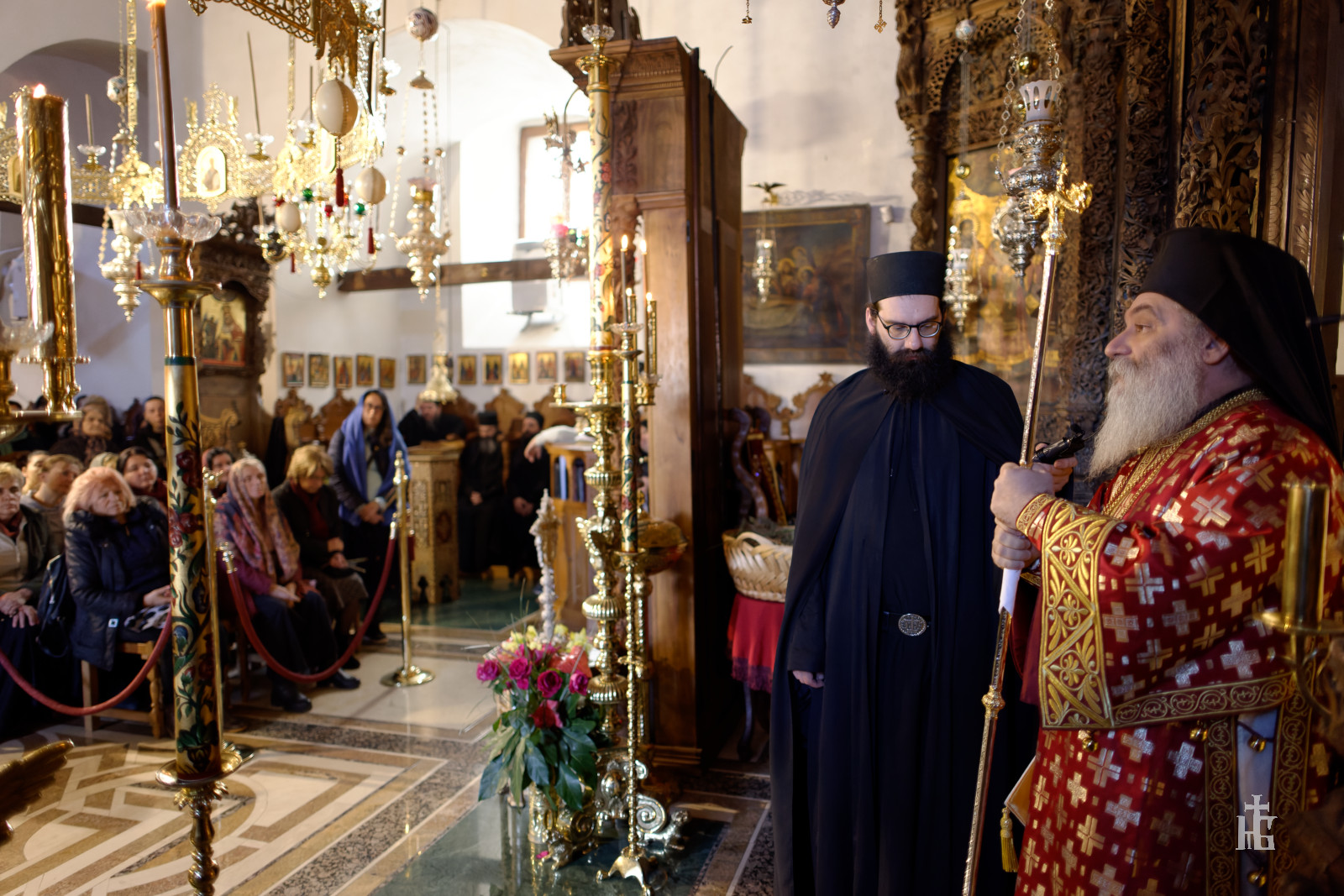
Beloved brothers and sisters, the Lord calls us to willingly take up our cross and follow Him. He says, “If anyone desires.” He does not force us or coerce us into anything beyond our free will. He wants everything we do for His sake to be done with our consent, with our love, just as He willingly and out of love carried His own Cross for our salvation. As a result of His voluntary crucifixion, of His love poured out upon the Cross, came the Resurrection and eternal life. This is precisely the goal of our personal cross, of this fast, and of every voluntary struggle we undertake in the name of Christ: our resurrection, our deification, and our complete union with the beloved God. Without the Cross, there could be no Resurrection. “For behold, through the Cross, joy has come into all the world.” And the closer we draw to our crucified Savior, the more we resemble Him—the One who restored communion between humanity and God—the lighter our personal cross becomes.
Therefore, let us carry our cross with patience, gratitude, obedience, and humility before God, and Christ will become our helper. When we approach Him, the sufferings of our lives become much lighter and easier to bear. This is the meaning of His words: “Take My yoke upon you and learn from Me, for I am gentle and lowly in heart, and you will find rest for your souls. For My yoke is easy, and My burden is light” (Matthew 11:29-30).
In this life, all people suffer, regardless of whether they are righteous or sinful, devout or unbelieving. There is no one in this world without a cross or trials. However, not every cross leads to eternity. On the hill of Golgotha, there were three crosses. In the center stood the Cross of the innocent Savior, Jesus Christ, who sealed our freedom with His sacrifice. To His right was the cross of the repentant thief, through whom the mystery of repentance was revealed—and with it, the knowledge of God. This thief recognized his sin, repented, saw the Lord in the One crucified beside him, and became the first inhabitant of Paradise. The third cross was that of the ungrateful thief, who, though guilty and justly condemned, refused to accept his cross and complained against God.
Thus, beloved, there are sufferings in life that do not serve eternity. But let us not become like those who grumble and are ungrateful. Everything we have—every good thing—is given to us by our most holy God. “Every good and perfect gift is from above, coming down from the Father of lights.” Let us give thanks to Him for all that He gives us, and use it for the salvation of our souls. For all would be in vain if, in our foolishness, we harm our own souls. This is why, in today’s Gospel, we heard: “For what will it profit a man if he gains the whole world, but loses his soul? Or what shall a man give in exchange for his soul?” (Mark 8:36-37).
The soul is given eternity by God; indeed, the whole person is eternal by grace. The general resurrection will be for the entire person—both soul and body. And the whole beautiful world, created by God, is not worth as much as one human soul—one person seen through the lens of divine eternity, through the eyes of God’s love. God has blessed us with the gift of dwelling in eternal communion with Him, of becoming one with Him in His ineffable beauty. This is our purpose, our meaning, and our ultimate goal.
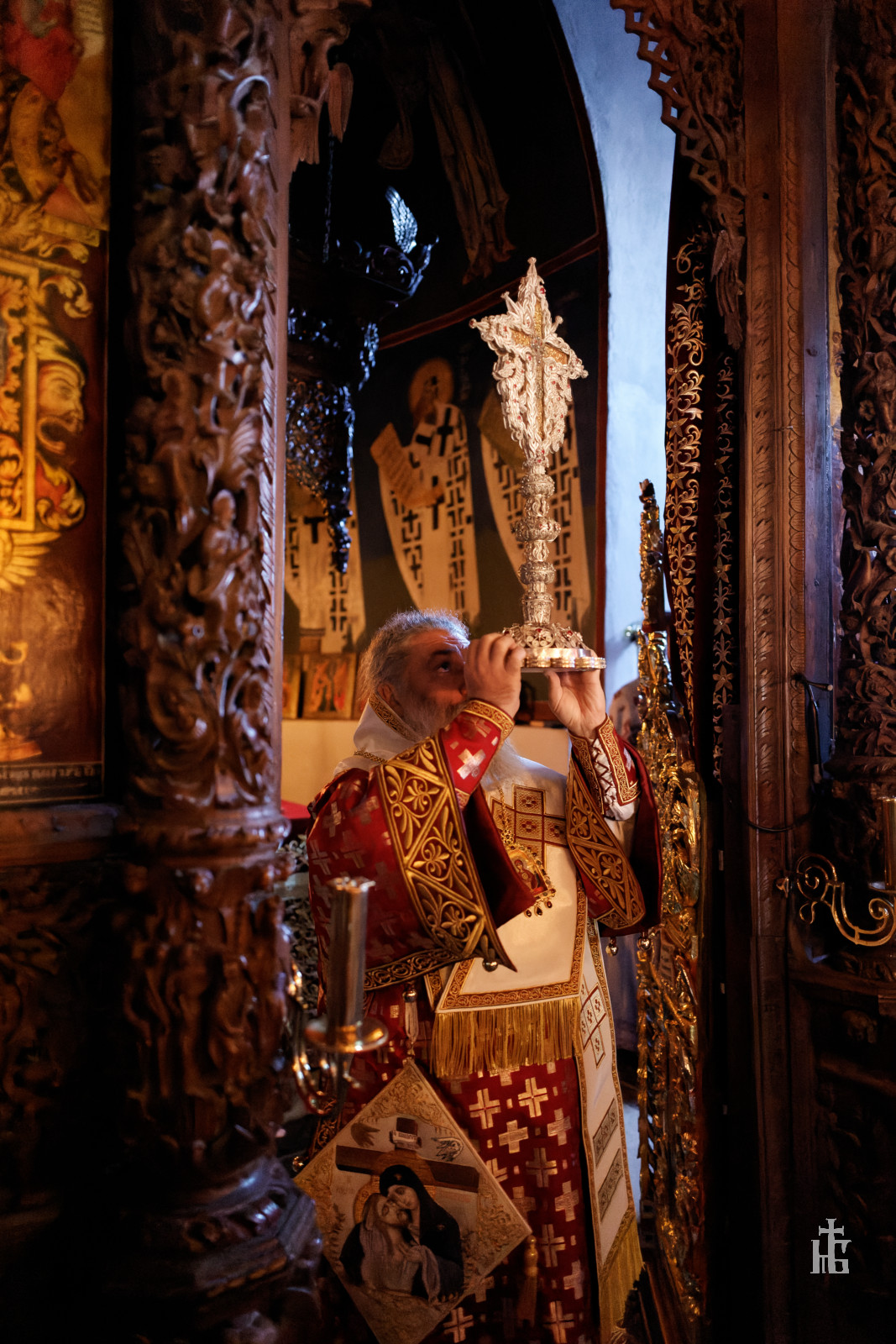
Our Church, moreover, possesses all the means for acquiring that blessed eternity, which is incomparably more valuable than this world. The holy time we are passing through now—this forty-day journey of fasting that culminates in the greatest feast, the Resurrection of Christ—is a time when we must fully dedicate ourselves to God. It is a time to prepare ourselves for the radiance of eternity, to learn that man can live with very little food, but cannot survive even a moment without God. It is a time to cultivate the habit of giving thanks for all things.
May the Lord grant us strength through His life-giving Tree—the Cross—by which He saved us all. May we all endure to the end in the struggle of this holy fast and come together to behold the holy and glorious Resurrection of Christ.
Amen!



